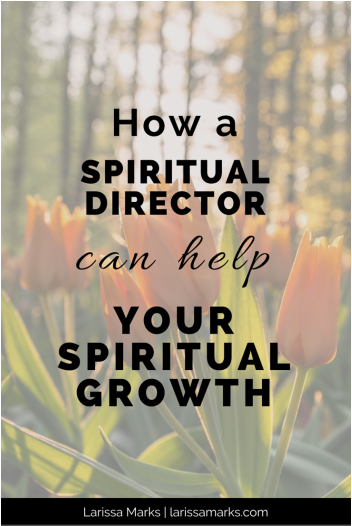Don’t be a stranger to what you most deeply want. I think what God most deeply wants for you is what you most deeply want.” Father Greg Boyle Are you aware of what you most deeply want? Do you give yourself permission to be honest with what you most deeply want? It can be scary to take a real honest look at what we want. We might discover unmet desires, and unacknowledged disappointment. We might find that we have deep desires that we've masked out of fear that they will never get met. When I think about my nearly 10-year marriage, some of my most vulnerable moments with my husband have been when I am sharing about my deepest longings. Sometimes it feels safer to not even bring them up. But when I do muster up the courage to reveal what I want, there is almost always a deeper intimacy and partnership that gets birthed. What if God has deposited your deepest desires into you? What if he designed you to know him more intimately in those desires? Consider the reality that Jesus often asked that very question: what do you want? What do you want me to do for you? If we withhold our deepest desires from God, we will always keep him at a distance. We will always be protecting ourselves, never giving God the chance to meet us in those desires. If, however, we allow ourselves to acknowledge what we most deeply want, then we get more in touch with our soul. And in that place, we are free to deeply, intimately connect with God and receive from him. So be brave with your desires. Let God invite you into a place of safety, and give yourself permission to embrace your deepest desires. Who knows? Maybe the things that God most deeply wants for you is what you most deeply want. ACTION & PRACTICE Take some time today or this week to reflect on what you are currently wanting. Don't edit yourself. Simply journal or list out the things that your soul most deeply desires. Share those things with God. Listen for anything he wants to say. Do you give yourself permission to acknowledge what you most deeply want? What stands in the way of that? Please share in the comments. Want guidance and inspiration for your spiritual journey delivered to your inbox?
Sign up for my email newsletter Notes From Larissa. Are you looking for ways to grow spiritually? Spiritual development and maturity is such a vital part of our lives, but many of us get stuck or simply need some practical ways to move forward. If you're looking for ideas on how to grow spiritually and continue in your spiritual development, then this post is for you. Why do we get stuck in our spiritual growth? If you’ve been on the spiritual journey for any length of time, you’ve probably experienced feeling spiritually stuck. It may feel like your spiritual growth has plateaued, or your relationship with God has hit a wall. We may be stuck for a whole host of reasons. Maybe we are stuck because there's an area of our lives that we are unwilling to let God shape. Or we are stuck because we're not sure if being in relationship with God is worth the hard effort and work. Or we are stuck because we're in a season of waiting. Being spiritually stuck isn’t necessarily a bad thing. Oftentimes, it simply means that there is a new season God is inviting you to step into - a new way of relating to him, or a new way of living. Take action with your spiritual development. Whatever the reasons for us becoming stuck, I believe we can find our way out. One of my personal principles for spiritual growth is, “Do whatever is working. If it stops working, try something new.” It is often in the act of trying something new with God that we experience a breakthrough and forward momentum. Here are 10 practical ideas for your spiritual growth. 1. Do some deep self-reflection. Make space to reflect about where you are in life and where you want to be. Here are 6 Simple Questions for Self-Reflection that will help guide you. 2. Share about it with a friend. Talk with a trusted friend or spiritual director and ask them to pray with you. Invite him or her into your frustrations and questions. When we are stuck, we are often helped by the simple act of asking another person for help. 3. Create a new Rhythm for Life. A rhythm for life is a simple statement of personal habits that you choose to practice to intentionally center your life on loving God, and allow him to form you. Reassess your current spiritual rhythms. Ask God to give you a few practices and habits to make space for him. 4. Practice gratitude. Create a Gratitude List in a journal or on your wall. Write down all the things that you're thankful for. Celebrate and thank God for those things. 5. Shake things up and do something new. Find a new way of connecting with God. Read a book or listen to a podcast about the spiritual life to gain a new perspective. Go on a hike and spend time with God in nature. Let God nurture you through some self-care for the mind, body & soul. Try the Examen prayer. 6. Help someone else. A great antidote to being spiritually stuck is serving someone else in a practical way. Look for a way to help someone today. 7. Have a conversation with God. Create space to listen to him. Sit quietly, and ask God your questions. Invite him to speak to you. God might give you insights about what is going on in your spiritual life, and direction for moving forward. Write down what you think he is saying to you. 8. Clear away the clutter and distractions. There are lots of things that can clutter our spiritual lives - addictive or unhelpful behaviors, fear, unhealthy relationships, incomplete projects, mental noise. Take a look at what is cluttering your life, and ask, “Is this thing helpful or good for me?” If the answer is no, consider letting it go. 9. Go on a spiritual retreat. Spiritual retreat is time set apart to be in quiet, rest, and solitude with God. Going on a spiritual retreat could guide you into a place of spiritual refreshing and renewing. I have experienced so much breakthrough during personal spiritual retreats, and highly recommend them for anyone wanting to go deeper in their spiritual journey. 10. Brainstorm a list of activities that make you feel alive. Create a list of activities that bring you joy and life. Be as thorough and free with this list as possible. Do something on that list today with God. Keep going! Be encouraged, friends. If you really are stuck in your spiritual growth, God has the desire and the power to lead you out and into the next part of the journey. If you need help with your spiritual development, I would love to hear from you and help you press on with God. Send me an email, and get in touch. What are you doing to grow spiritually? What are things you do to continue your spiritual development? Please share in the comments. Want guidance and inspiration for your spiritual journey delivered to your inbox?
Sign up for my email newsletter Notes From Larissa. Spiritual direction is a spiritual formation practice that you deeper in your transformation with God. As a trained spiritual director, many people have asked me what spiritual direction is, and why it might be a good fit for them. Previously, I shared Why I Got a Spiritual Director. Now I’ll offer you an in-depth look at what spiritual direction is, what a spiritual director does, and how to determine if spiritual direction could benefit your spiritual growth. If you want to know more about spiritual direction, read on. What is spiritual direction? Spiritual direction is guidance and companionship given by another person that allows you to grow in your spiritual journey and relationship with God. It creates a safe place for you to explore your relationship with God, become more aware of God’s presence and work in your life, and make sense of your faith journey. The purpose of spiritual direction is to grow in intimacy with God, become a more spiritually formed person, and live a meaningful life. In essence, its primary purpose is to guide you into becoming more fully who you are meant to be in relationship with God. What does a spiritual director do? No one needs to journey alone. A spiritual director is a trained listener who will accompany you as you share about your spiritual journey. A spiritual director’s primary intent is to guide you into encounters with God, and to help you pay attention to God’s activity in your life. A spiritual director serves as a guide, support, and encourager. Through prayer, conversation, listening, asking questions, and letting the Spirit give direction, the spiritual director will help you interpret your experiences and respond to God's presence and voice. He or she will listen and create a safe place to explore your relationship with God and unearth your deepest desires. There is no set agenda, and you are free to consider whatever aspect of your spiritual journey you wish. Who is spiritual direction meant for? Spiritual direction is available for anyone who is seeking to encounter God and go deeper in their spiritual journey. In spiritual direction, you will have a safe and open environment to explore your relationship with God. How could spiritual direction benefit you? Whether you seek a spiritual director during a specific season of life, or engage with one as a part of your regular spiritual practices, spiritual direction is beneficial in many ways. Oftentimes, people will build a long term relationship with their spiritual director, meeting with them monthly. Here are a few reasons you may want to meet with a spiritual director:
How is spiritual direction different from counseling or therapy? Spiritual direction is not therapy or counseling. Spiritual direction differs from counseling ministries primarily in its focus: the intention of spiritual direction is not to help solve a problem, but rather to look for God's activity within any problems and within the rest of your life experiences. This perspective invites you into deeper relationship with God in the midst of whatever you are experiencing. How does spiritual direction differ from other spiritual relationships? Spiritual direction is also not mentoring or discipling in that these relationships usually focus more on moral, educational and vocational guidance in a particular faith tradition. Although there will be dimensions of spiritual direction in these relationships, a true spiritual director is someone who can listen and provide spiritual guidance beyond any personal need to defend or uphold any particular tradition or religious institution. It is also not the same thing as spiritual friendship in that spiritual friendship is usually a peer relationship that includes some level of mutuality. Spiritual direction, on the other hand, is "one-way" in that the director is there solely to attend to the directee and does not look to that relationship in order to have any of their personal needs met. What people say about their spiritual direction experience Here are some ways people describe their experience in spiritual direction: “I was at some major personal cross-roads in my life, and spiritual direction helped me hear from God in the midst of making those decisions. It helped me to listen to my own desires, as well as God's whispers of love and blessing. God gave me a bigger view of what life with him can be like, and cultivated more grace in me for myself and for others. I experienced more of God's love and acceptance." "Meeting with a spiritual director gave me a renewed sense of God's presence in my life. Whatever seemed murky or frustrating was replaced with a total sense of peace. During one spiritual direction session, my spiritual director and I prayed together. In that prayer time, I was overcome with relief, and knew that God was releasing me from having to do and be anything beyond what I could manage." “My spiritual director helped me through a season of waiting on God. Through spiritual direction, I learned how to ground my identity in God, connect with him, and make my spirituality my own. I am so much more secure in who I am, and more aware of God's voice speaking to me." How to find a spiritual director There are several ways to find a spiritual director. Here are a few places to start your search:
What to look for in a spiritual director Every spiritual director has his or her own unique experience and style. It is up to you to choose a spiritual director who has the training, formation and experience that suits your needs. You may want to set up an initial appointment with a potential spiritual director to explore whether it is a good fit. It will help to ask questions about the spiritual director’s experience, expectations of the spiritual director and directee relationship and roles, whether there is a fee, and any other expectations. An effective spiritual director is someone who is:
What to expect in a session with a spiritual director
Ready to go deeper in your spiritual journey? Now that you know more about spiritual direction, consider that it might be a great next step for you in your own spiritual journey. If you want to learn more about how I can help you as a spiritual director, check out my services. You may also like my post Why I Got a Spiritual Director. For further reading: Sacred Companions: The Gift of Spiritual Friendship & Direction by David G. Benner Do you have experiences with spiritual direction? Or questions for me about spiritual direction that I didn’t cover? Please share in the comments. Want guidance and inspiration for your spiritual journey delivered to your inbox?
Sign up for my email newsletter Notes From Larissa. |
WELCOMEHi, I'm Larissa. I am an artist and spiritual director on the island of O'ahu in Hawai'i.
SEARCH THE BLOGSUBSCRIBESign up for my email newsletter Notes From Larissa.
TOP POSTSCATEGORIES
All
ARCHIVES
March 2024
|




